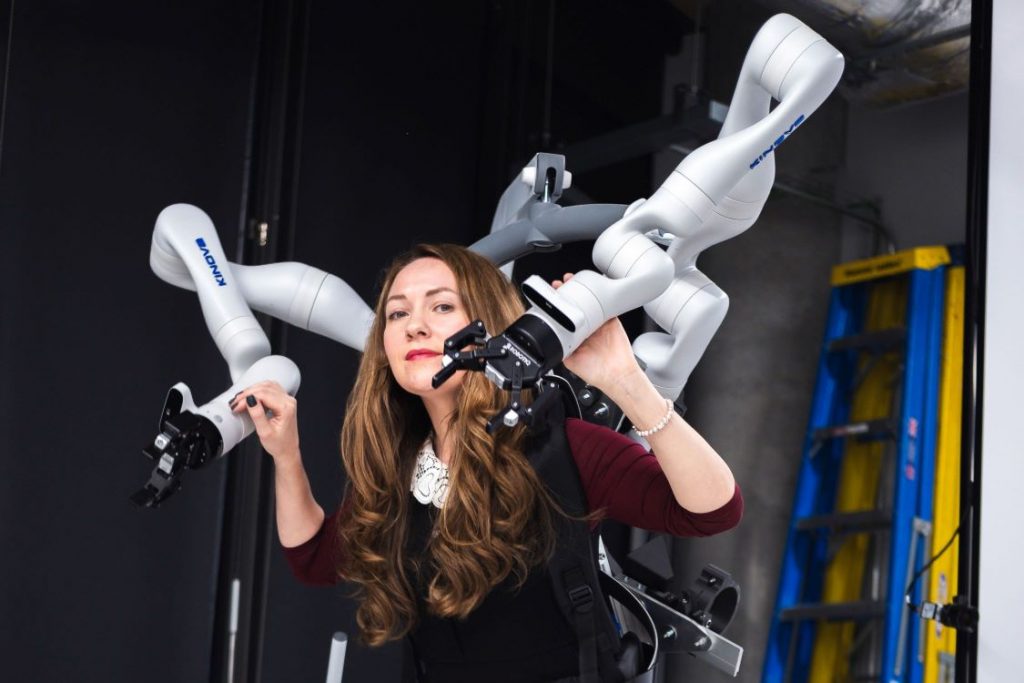
Dr Ekaterina Ivanova is setting up an network for female academics within EECS. We conducted a short interview to find out more.
Tell me a little about yourself
I am a new member of staff having started in January 2023 as lecturer in HCI. I study multi-modal human-robot interactions in various situations. I look at the rehabilitation of people in various situations for example children with cerebral palsy and how this could be aided by interactions with robots. I look a different modes of interactions with robots, for example, haptic, auditory and aim for something that can be useful in clinical practice.
What is the core idea behind the Female Academic Network (FAN)
I want to create a community where female academic at different levels from PhD to Professor can mix within EECS. The idea is an informal network that can do a number of things: collaboration for research, organisation of events and invitation for speakers. It would be a bottom up approach to create a network within EECS. I did something smaller when I was doing a postdoc at Imperial College with the Female Robotics club.
Tell me a bit more about the female robotics club
This was born during Covid (initially online and later in person) as a very informal group of colleagues who communicated together, cooked together, writing retreats and social events. It was not financed but entirely community organised as a very small scale but with very positive mental health and professional impacts.
How do you imagine the meetings for the FAN?
We want to start with a participative workshop to set expectations and agree on what the meetings will be like. The initial idea is to have team building event, invite great female speakers and have learning workshops or discussion of relevant politics.
What are your big hopes for the FAN?
One hope is to help women stay in research after the PhD and postdoc phase and to make the transition smoother. The network can provide role models for younger female researchers when not so many are available. The meetings can show female PhD and post docs what a pathway to success looks like for women. It’s a great opportunity for women who are part of the faculty to get to know each other and exchange ideas.
We are also planning a workshop for women of pre-university age and even younger to show them that engineering and computer science can be a good career for women. At London School of Mathematics and programming for children found that simple examples with robotics was great fun for the children and teaming up with the schools provided equipment.
We are currently applying for a small grant from EECS that can help fund invited speakers and events.
Who else is involved and how can people get involved if they are interested?
A number of people are already part of FAN: Aisha Abuelmaatti, Maria Liakata, Julia Ive, Laurissa Tokarchuk, Michaela Macdonald, Mahesha Samaratunga.
If people want to find out more contact me (Ekaterina). It would be great to have more people involved in organisation and contributing ideas.